
The crypto tax compliance landscape in the UK has transformed dramatically. What started as a niche concern for early adopters has become a mainstream requirement affecting over 2.3 million UK crypto holders. HMRC's approach has evolved from general guidance to specific enforcement actions, with crypto-focused compliance teams and sophisticated transaction monitoring systems.
This isn't just about filing your annual tax return anymore—it's about comprehensive compliance that protects your financial future. HMRC now receives transaction data directly from major UK exchanges, cross-references this with tax returns, and actively pursues non-compliant investors with penalties that can reach £1,600 plus interest on unpaid taxes.
At HashTax, we've helped hundreds of clients navigate this complex landscape, from retail investors discovering their first compliance obligations to active traders managing thousands of transactions across multiple platforms. This survival guide consolidates everything we've learned into a comprehensive resource that can guide you toward complete HMRC crypto compliance, whether you're managing a £5,000 portfolio or sophisticated trading operations worth hundreds of thousands.
The reality is simple: crypto tax compliance is no longer optional, and the cost of getting it wrong far exceeds the investment in getting it right.
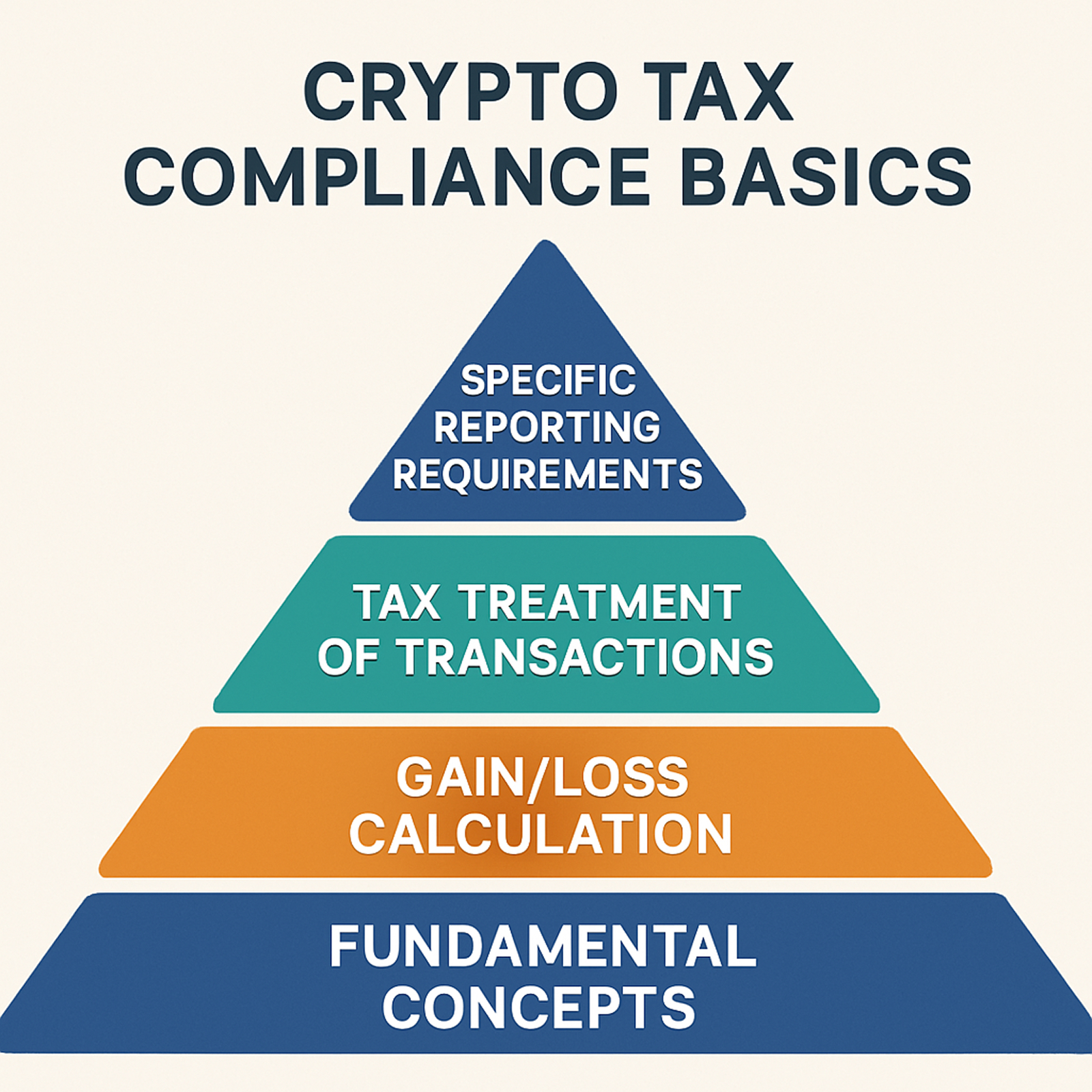
HMRC treats cryptocurrency as property, not currency, which fundamentally shapes all compliance requirements. This classification means that Capital Gains Tax (CGT) applies to most crypto activities for individual investors, with rates of 10% for basic rate taxpayers and 20% for higher rate taxpayers. The annual exempt amount has been significantly reduced to £3,000 for the 2024/25 tax year, meaning even modest gains can trigger tax liabilities.
The Five Fundamental Compliance Requirements:
1. Disposal Event Recognition Every sale, swap, gift, or use of cryptocurrency creates a disposal event requiring tax calculation. This includes crypto-to-crypto swaps—a common misconception that has cost HashTax clients thousands in penalties. When you trade Bitcoin for Ethereum, HMRC sees this as disposing of Bitcoin and acquiring Ethereum, both requiring separate valuations.
2. Accurate Valuation Each disposal must be valued in sterling at the time of transaction. For major cryptocurrencies, this typically means using market rates from established exchanges. However, for smaller tokens or DeFi activities, valuation becomes more complex and requires professional methodology.
3. Cost Basis Tracking HMRC requires average cost pooling for identical assets under Section 104 of the Taxation of Chargeable Gains Act 1992. This means you can't simply choose which specific Bitcoin units to dispose of—all Bitcoin holdings are pooled with an averaged cost basis.
4. Complete Record Keeping Every transaction requires documentation including: date and time, quantity disposed, sterling value, acquisition cost, platform used, and supporting evidence. HMRC expects these records to be maintained contemporaneously, not reconstructed years later.
5. Annual ReportingGains above the £3,000 annual exempt amount must be reported on your Self Assessment by 31st January following the tax year. Even if no tax is due, you may still need to report if gross disposals exceed four times the annual exempt amount (£12,000 for 2024/25).
At HashTax, we regularly see five critical compliance failures that result in HMRC enquiries:
The financial impact is significant: HMRC penalties start at £100 for late filing, escalate to £1,600 for extended delays, and include interest charges on unpaid tax. More concerning are the estimated assessments—when HMRC makes their own calculations based on incomplete information, typically resulting in higher tax bills than accurate reporting would produce.
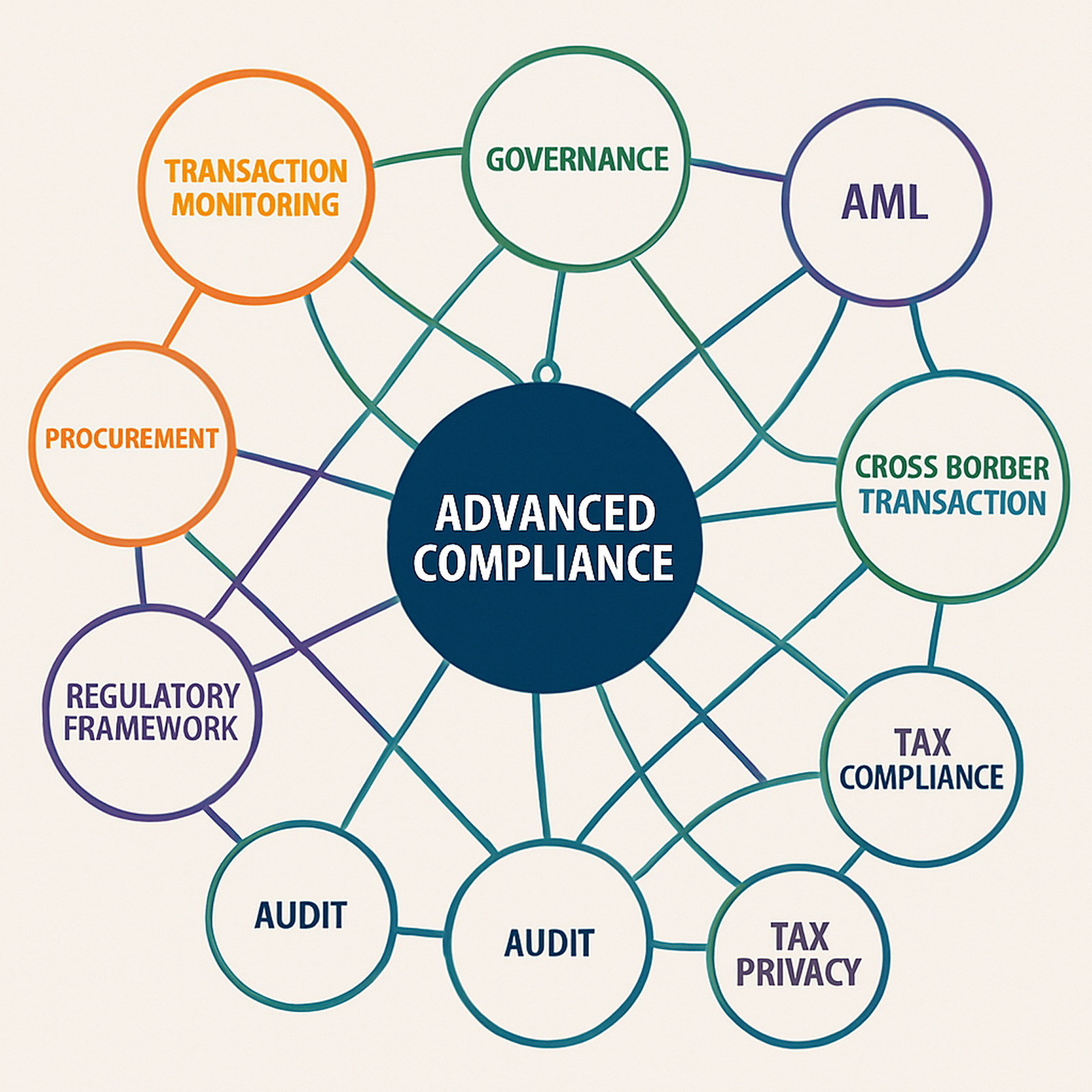
Decentralised Finance (DeFi) creates the most complex compliance challenges in cryptocurrency taxation. Unlike simple spot trading, DeFi activities generate multiple, simultaneous taxable events that require sophisticated analysis to report correctly.
Liquidity Provision Complexity
When providing liquidity to automated market makers (AMMs), each step creates separate tax implications. Consider a typical Uniswap liquidity provision:
At HashTax, we've analysed liquidity positions where single "provide liquidity" actions created six separate taxable events requiring individual valuation. One TraderTax Pro client's 23 liquidity positions across eight protocols generated 184 separate tax calculations.
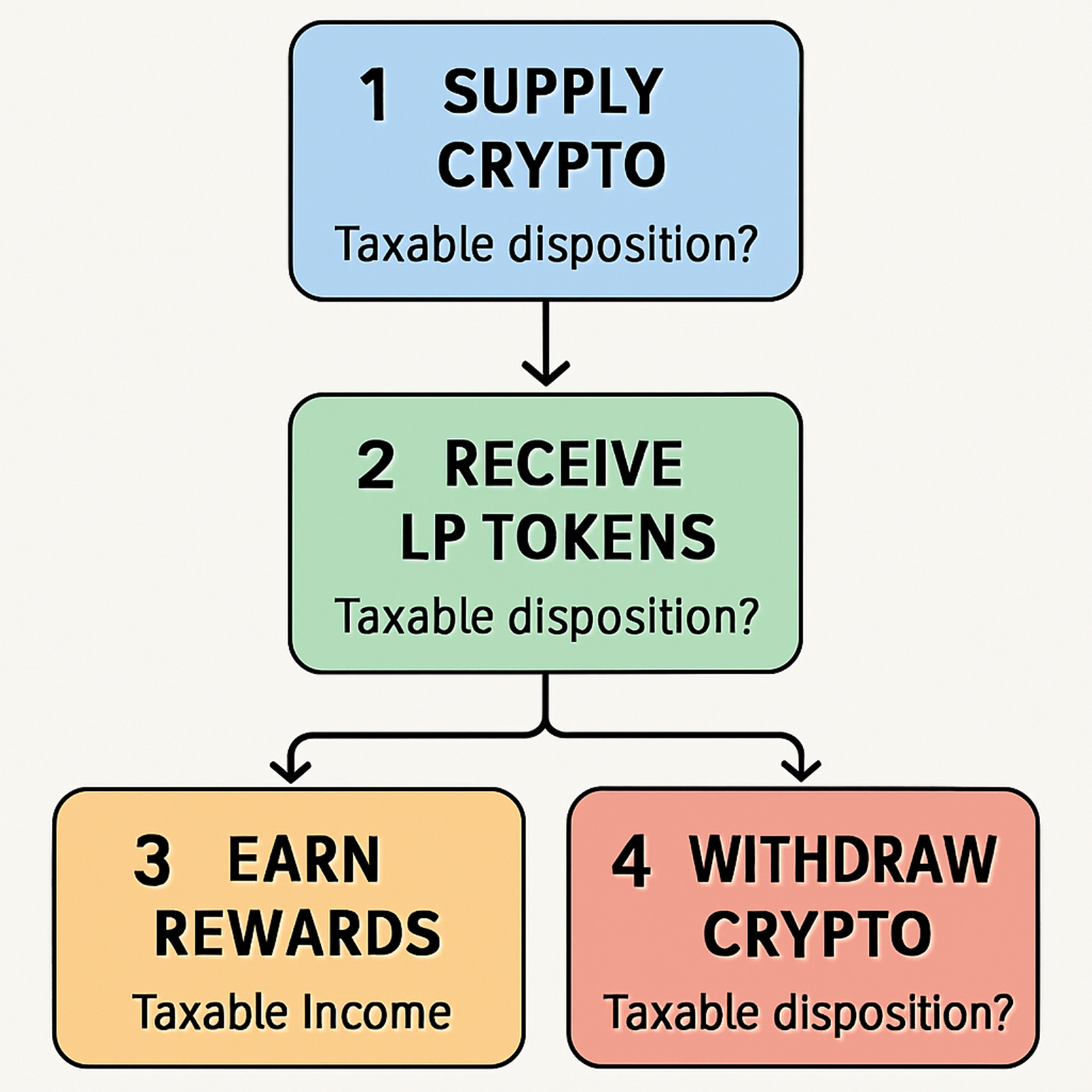
Yield Farming and Reward Protocols Yield farming amplifies complexity through continuous reward distribution and compounding. Most protocols distribute rewards daily or hourly, creating hundreds of micro-income events annually. The tax treatment varies based on reward type:
Cross-Chain Bridge Transactions
Moving assets between blockchains (Ethereum to Polygon, for example) creates unique compliance challenges. While HMRC hasn't issued specific guidance, the general principle treats each chain as a separate jurisdiction for tax purposes. This means:
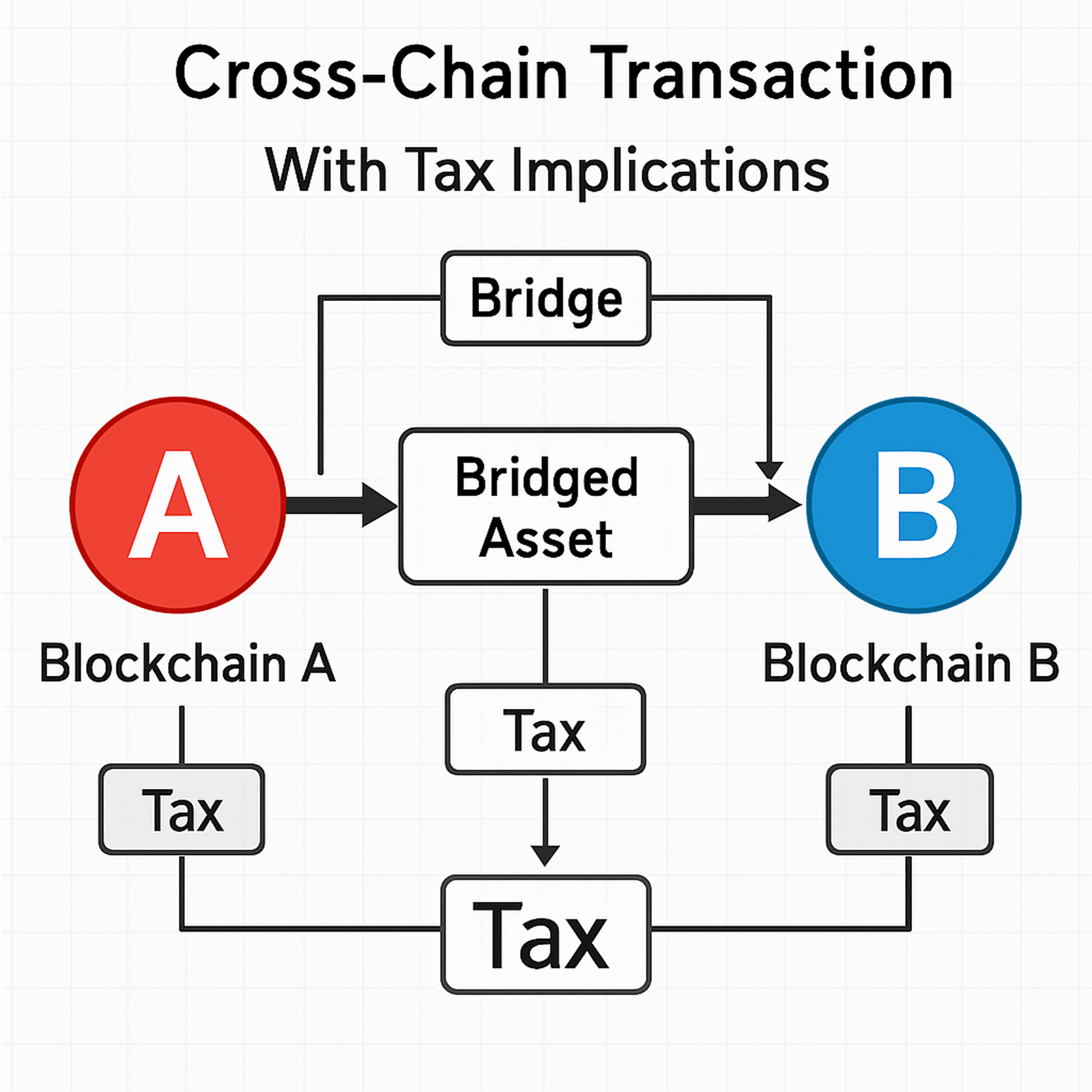
Cryptocurrency businesses face dual compliance requirements: corporate tax obligations and potential VAT implications. The classification between capital gains and trading income becomes crucial for businesses, affecting both tax rates and available reliefs.
Trading Income vs. Capital Gains Classification
HMRC applies traditional "badges of trade" tests to cryptocurrency activities:
For businesses classified as trading, gains become subject to Corporation Tax (19-25%) rather than CGT, but losses can be offset against other business income and carried forward indefinitely.
Mining and Validation Operations
Cryptocurrency mining creates income tax events at receipt of rewards, valued at market rates. However, mining businesses can claim substantial deductions:
One HashTax CryptoBiz Complete client reduced their mining tax liability from £18,000 to £7,000 through proper expense classification and capital allowance optimisation.
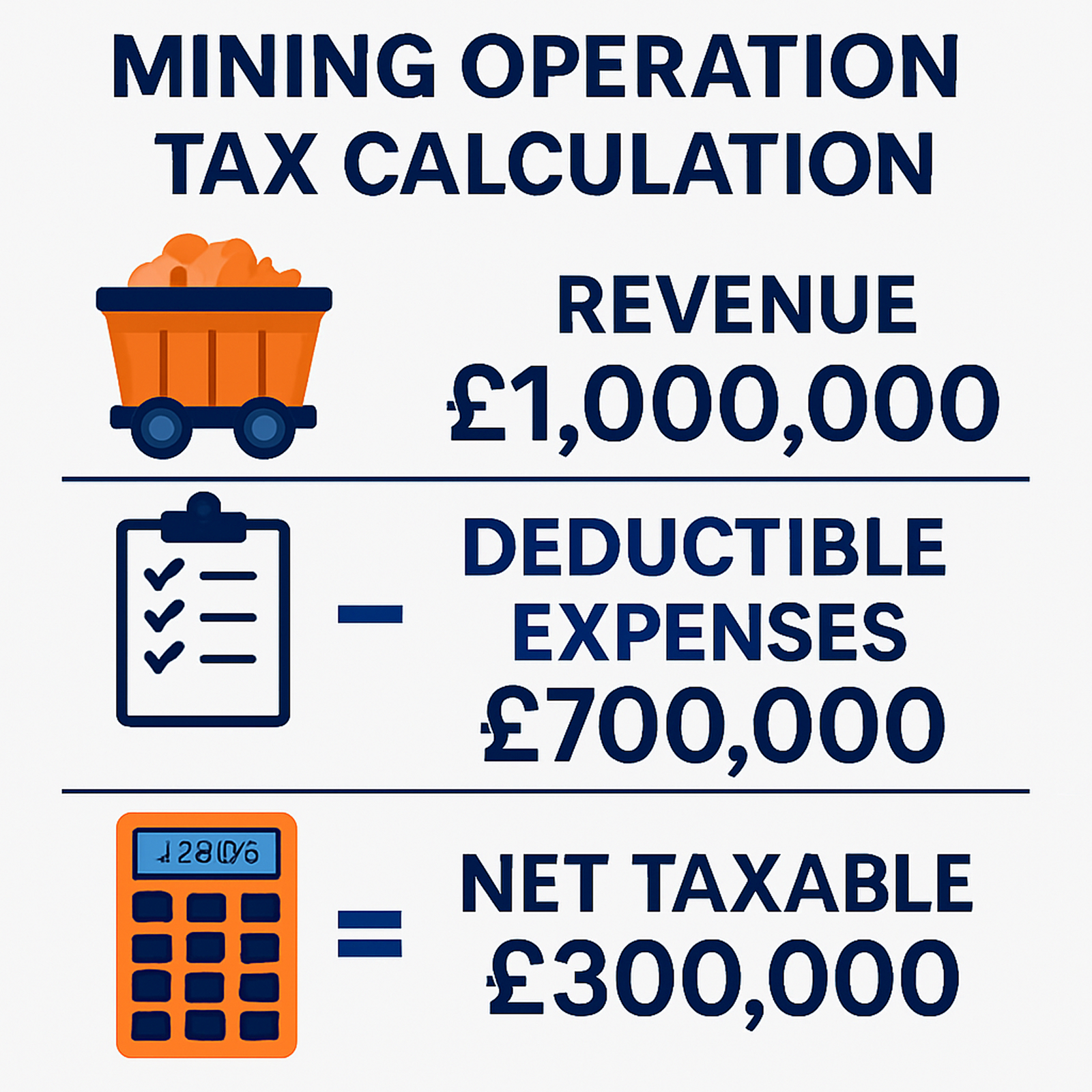
UK tax residents with international crypto activities face additional compliance layers. The interaction between UK tax rules and foreign jurisdictions creates complex scenarios requiring specialised analysis.
Multi-Jurisdiction Holdings
Crypto assets held across international exchanges may trigger additional reporting requirements:
Trust and Estate Planning
High-net-worth crypto holders increasingly use trusts for tax efficiency and succession planning. However, crypto-specific considerations include:
At HashTax, our CryptoWealth Advisor service has helped clients structure crypto holdings to reduce annual tax liability by 25-40% while ensuring complete compliance across multiple jurisdictions.

Professional crypto tax compliance requires systematic record-keeping that goes beyond simple spreadsheets. The volume and complexity of modern crypto activities demand specialised approaches.
Transaction Data Sources
Documentation Requirements Checklist
✅ Date and time of each transaction (GMT for UK compliance)
✅ Transaction ID or hash for blockchain verification
✅ Platform or method used for each transaction
✅ Quantities of cryptocurrencies involved
✅ Sterling values at transaction time
✅ Transaction fees paid in any currency
✅ Screenshots of transaction confirmations
✅ Wallet addresses for asset tracking
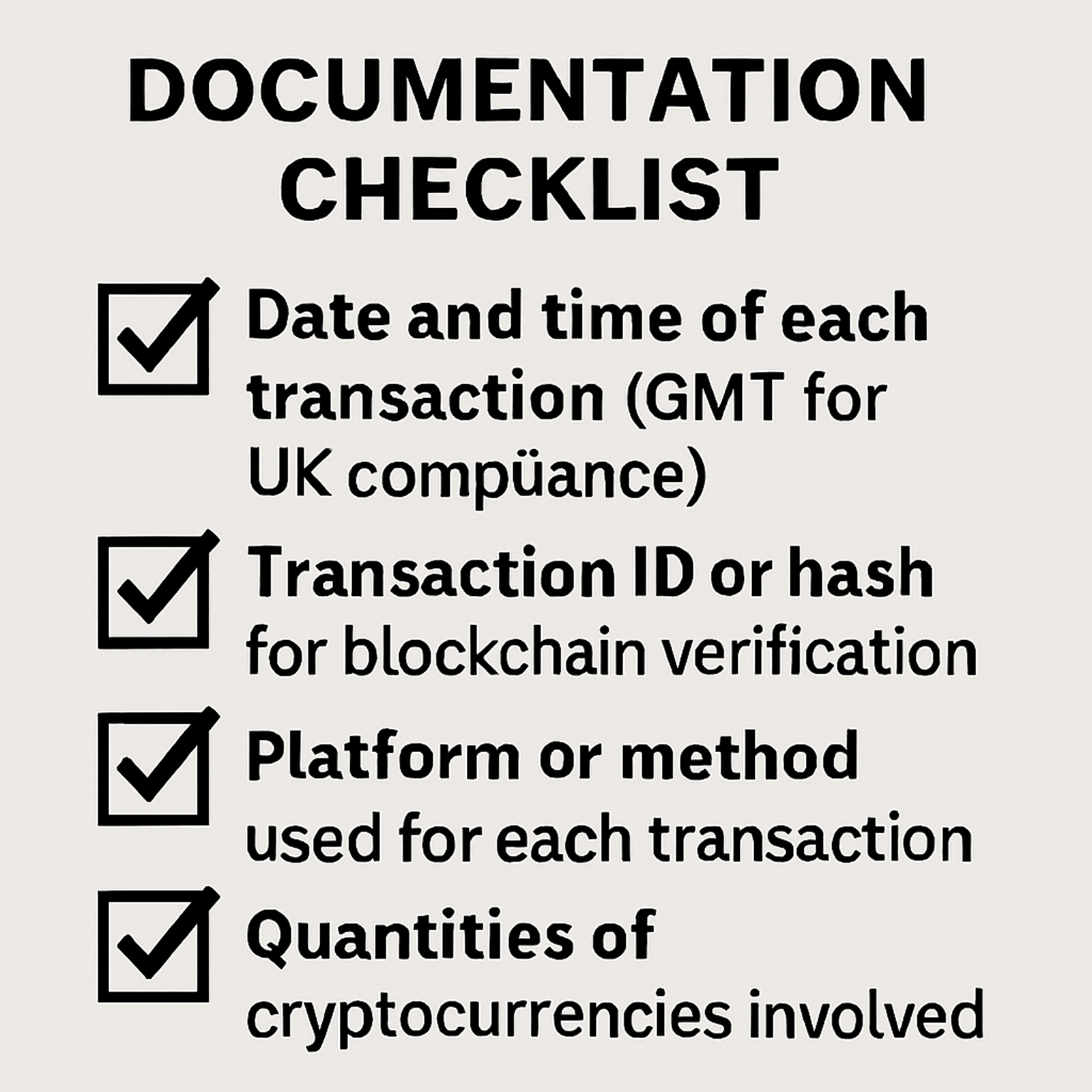
Primary HMRC Guidance Documents
HMRC Digital Services
While HMRC expects accurate calculations, they don't specify which tools to use. Professional services like HashTax maintain specialised systems for:
Multi-Exchange Reconciliation Professional analysis can connect to 30+ exchanges and DeFi protocols, automatically categorising thousands of transactions and identifying discrepancies that manual methods miss.
Cost Basis Optimisation Advanced systems implement proper Section 104 pooling calculations, optimise disposal lot selection where permitted, and identify tax-loss harvesting opportunities that manual calculations overlook.
Compliance Verification Professional review includes cross-platform reconciliation, methodology documentation, HMRC-compliant reporting formats, and audit-ready supporting evidence.
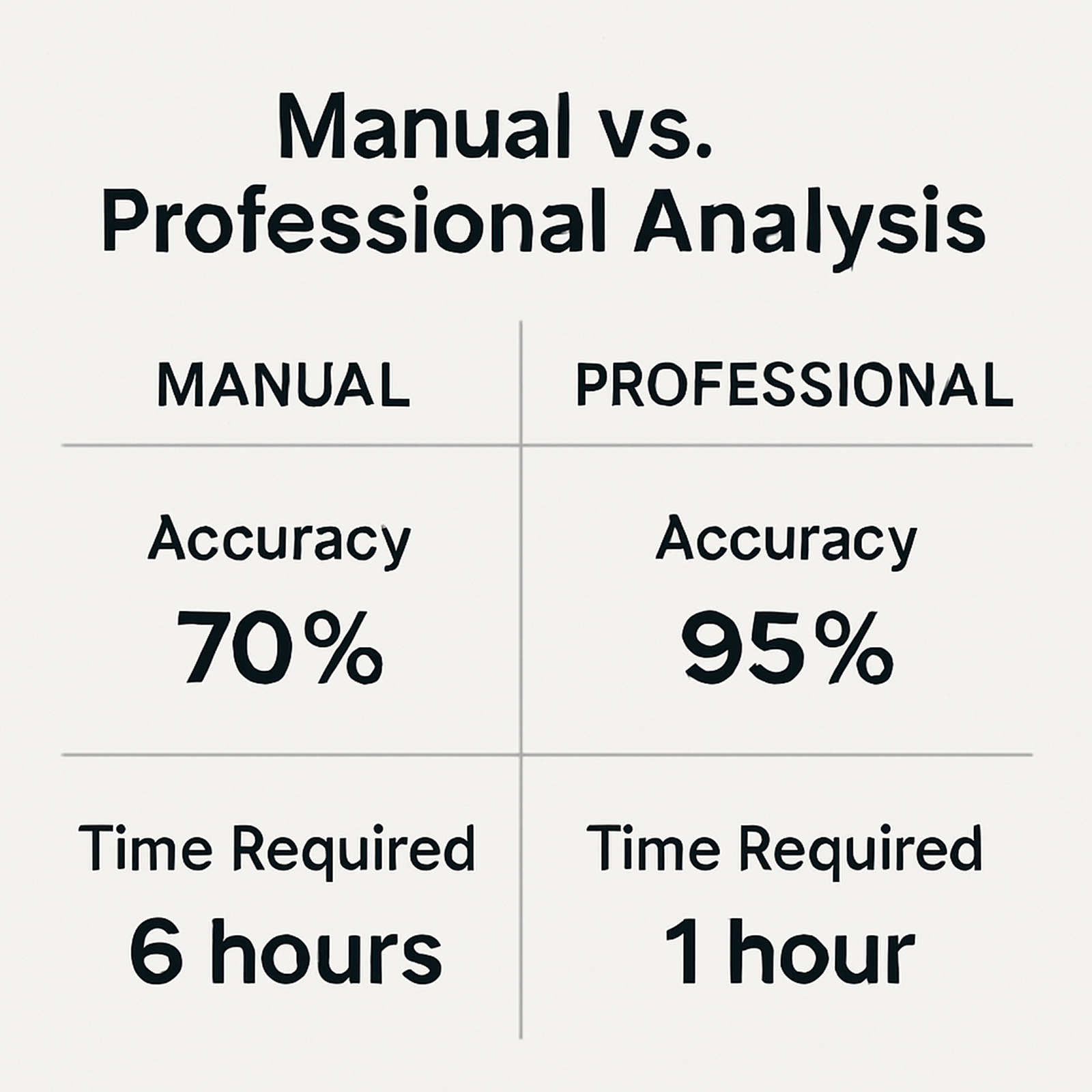
Regulatory Updates
Community Support
However, remember that community advice should never replace professional guidance for significant crypto holdings or complex situations.
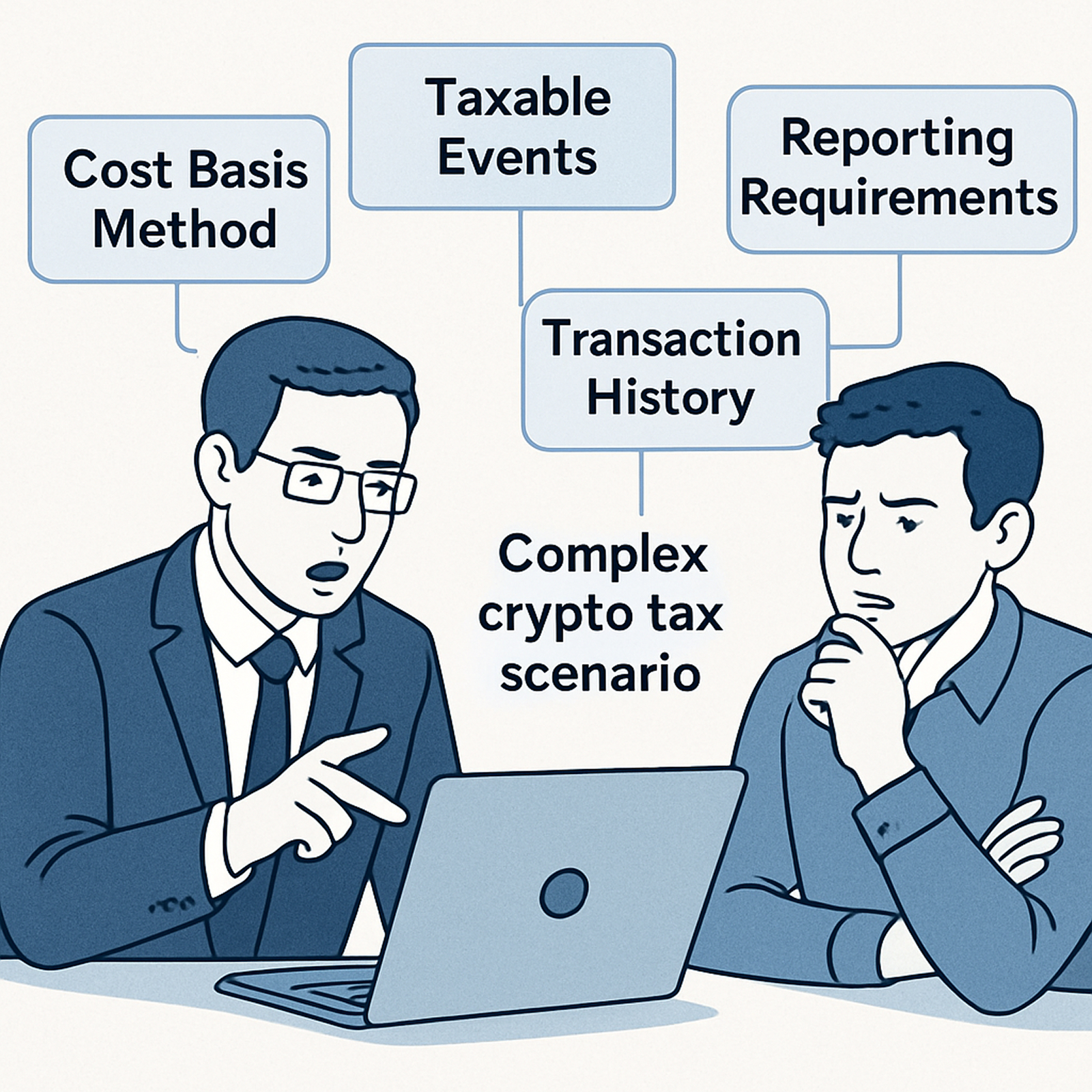
After analysing thousands of crypto tax situations, HashTax has identified key strategies that significantly improve compliance outcomes while minimising tax liability.
Timing Optimisation Strategies
The UK tax year runs from 6th April to 5th April, creating strategic opportunities for tax planning. We regularly help clients save thousands through optimal timing:
Example: Tax-Loss Harvesting Success
A TraderTax Pro client held £15,000 in unrealised gains and £8,000 in unrealised losses in March 2024. Rather than holding both positions into the new tax year, we recommended realising losses in March and gains in April. This strategy:
Record-Keeping Excellence
Professional-grade record-keeping prevents 90% of HMRC enquiry triggers. Our most successful clients maintain:
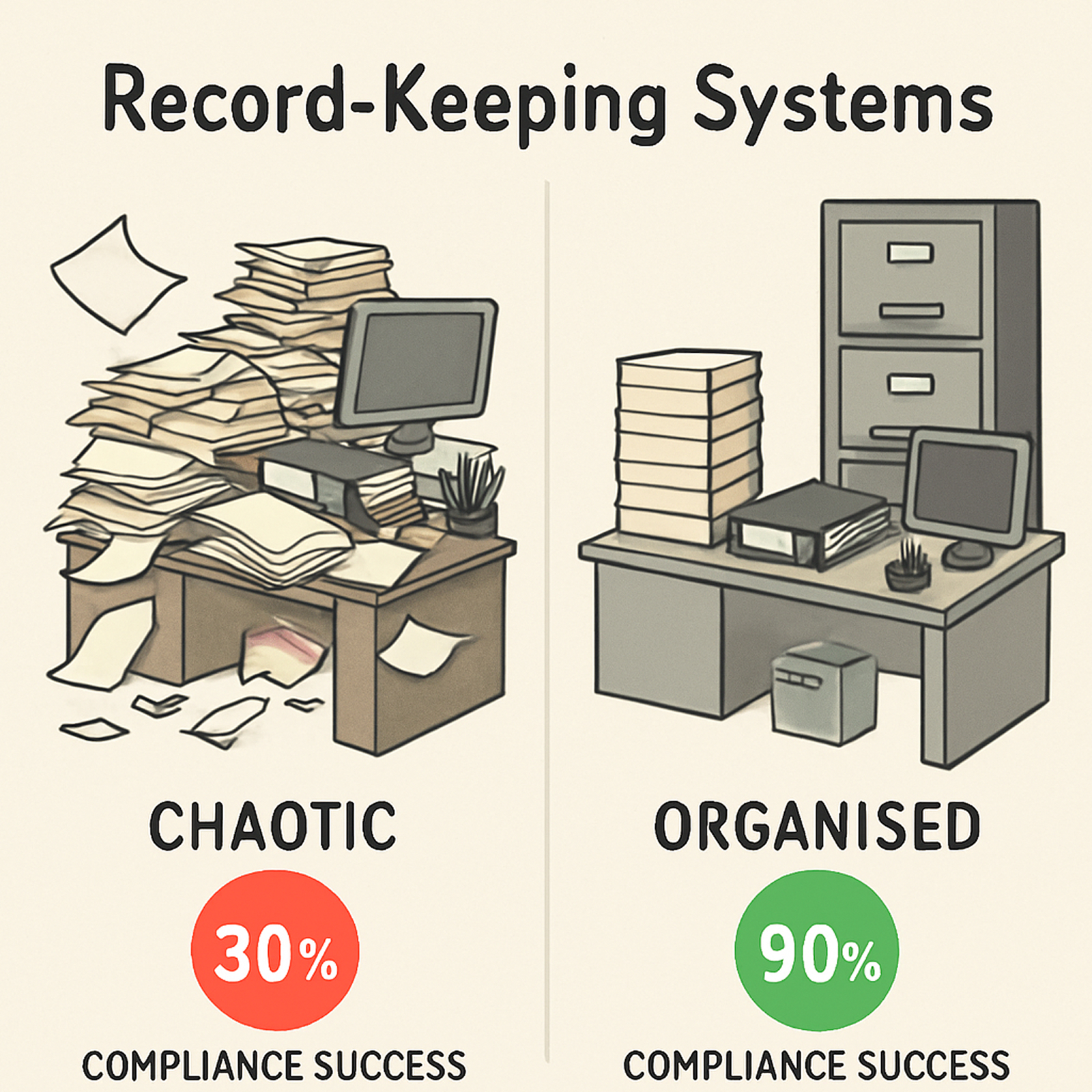
The £12,000 Discovery One retail investor client approached HashTax after attempting DIY compliance for three years. Our analysis discovered:
The Multi-Exchange Reconciliation Challenge An active trader with 2,347 transactions across seven exchanges had spent four months attempting manual reconciliation. HashTax's TraderTax Pro analysis:
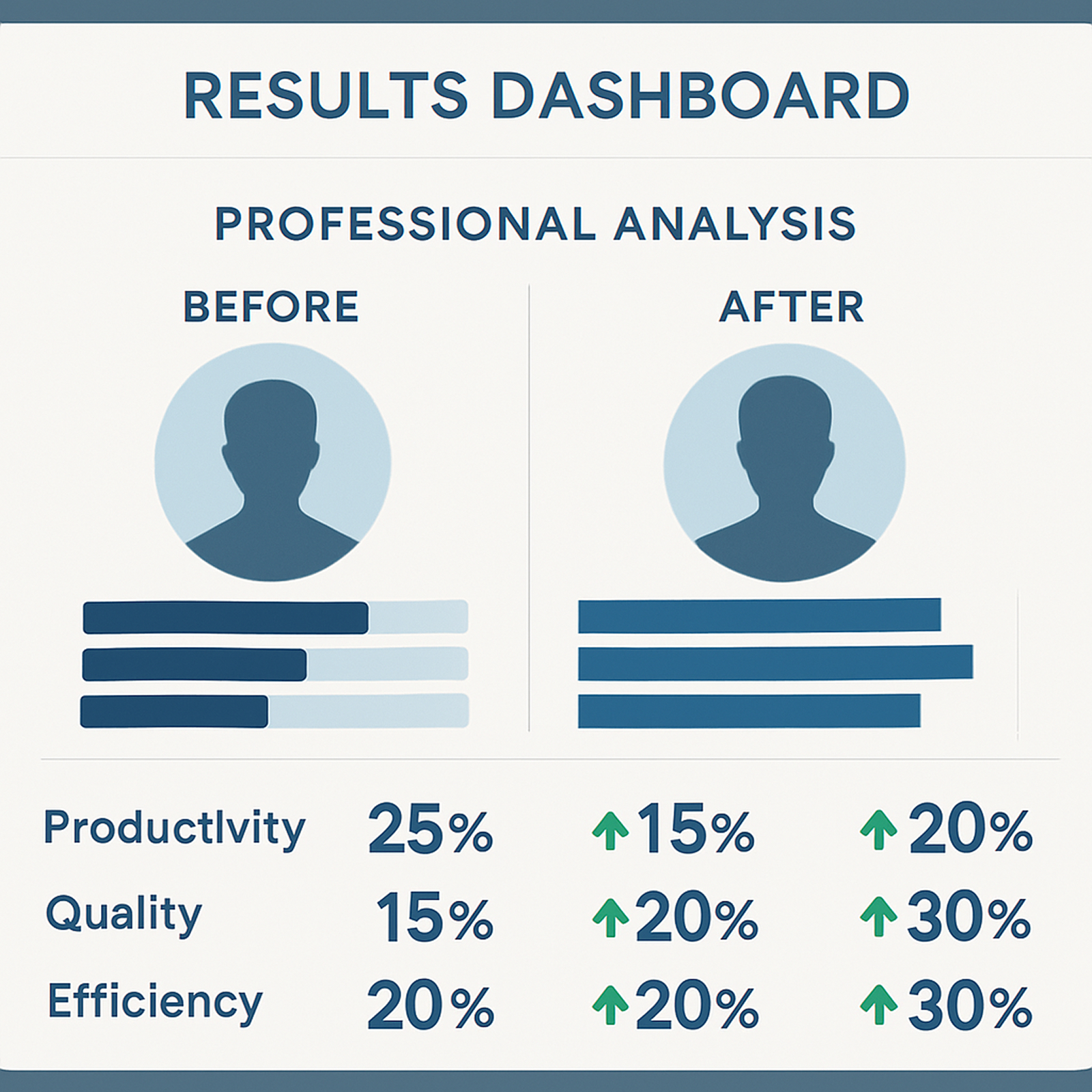
Portfolio Structure Optimisation For clients with substantial crypto holdings, strategic portfolio structuring can significantly impact long-term tax efficiency:
Compliance Future-ProofingHMRC's crypto compliance requirements continue evolving. Professional guidance helps clients stay ahead of regulatory changes:
At HashTax, our ongoing client relationships ensure compliance remains current with regulatory developments while optimising tax positions year over year.

Step 1: Compliance Assessment Determine your current compliance status and risk level:
Step 2: Critical Deadline Review
Step 3: Record Emergency Triage
DIY Suitability Assessment You might manage compliance independently if you have:
Professional Help Essential For
HashTax Service Alignment
At HashTax, we've maintained a 100% success rate in HMRC enquiry resolution for clients who engaged our services proactively. Our professional analysis typically identifies optimisation opportunities that save 2-5x the service cost while ensuring complete compliance.
Ready to achieve complete HMRC crypto compliance? Book a free consultation to assess your specific situation and understand exactly how HashTax can transform your crypto tax anxiety into confidence.
[Start Your Free Crypto Tax Compliance Assessment →]
In 30 minutes, we'll analyse your crypto activities, identify compliance gaps and optimisation opportunities, and provide a clear roadmap to complete HMRC compliance tailored to your specific situation.
Professional Disclaimer: This guide provides general information about UK cryptocurrency taxation based on current HMRC guidance. Individual circumstances vary significantly, and you should seek professional advice for your specific situation. HashTax provides professional cryptocurrency accounting analysis and strategic guidance throughout the UK.
About HashTax: The UK's leading cryptocurrency accounting specialists, helping investors and traders achieve complete HMRC compliance with confidence while optimising their tax positions through strategic professional guidance. Our specialised services transform crypto tax complexity into clarity, supporting clients from retail investors to high-net-worth portfolios with expert analysis and ongoing strategic support.

HashTax Specialists
Our team of ACCA-qualified accountants specializing in UK cryptocurrency taxation. We provide expert guidance on HMRC compliance, tax planning, and professional advisory services for crypto investors and businesses.